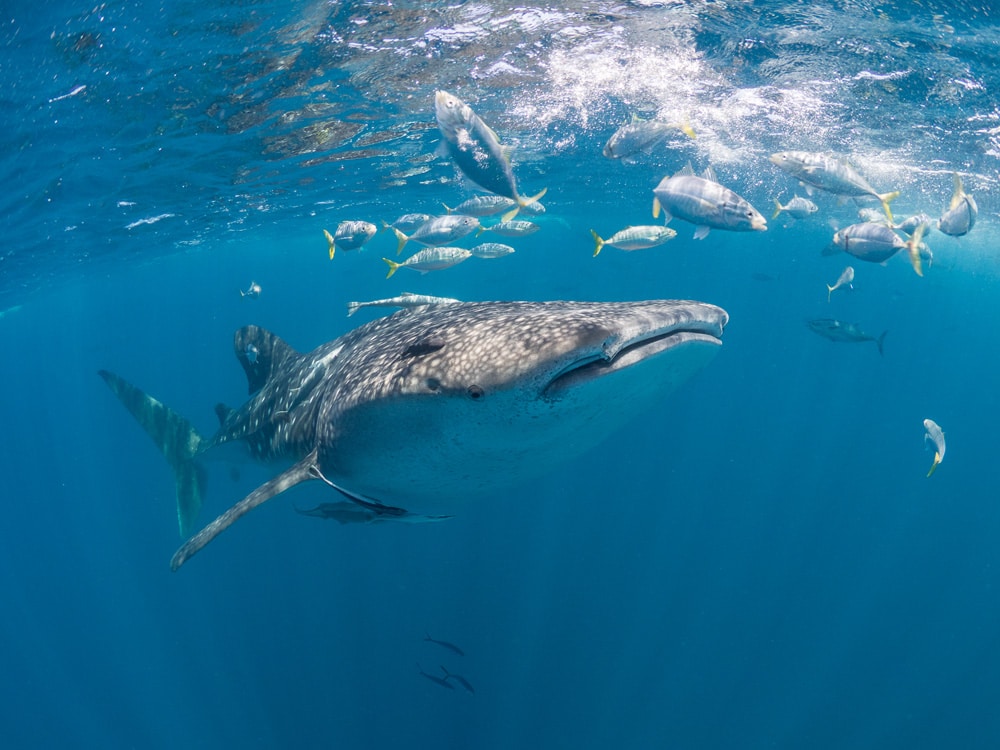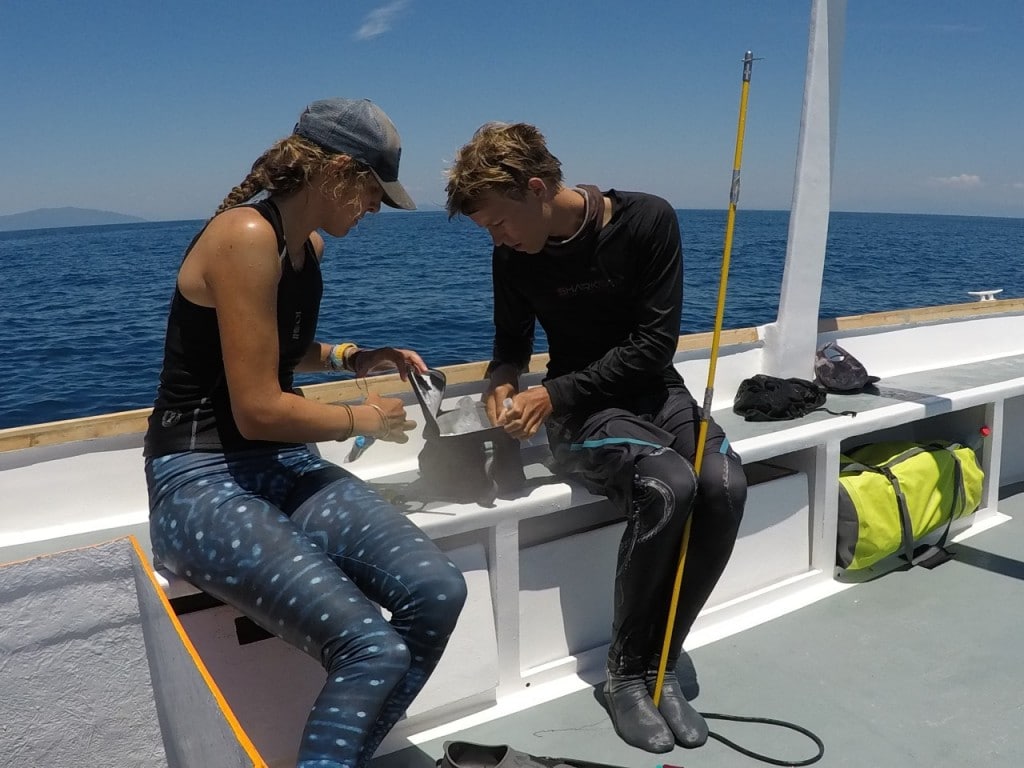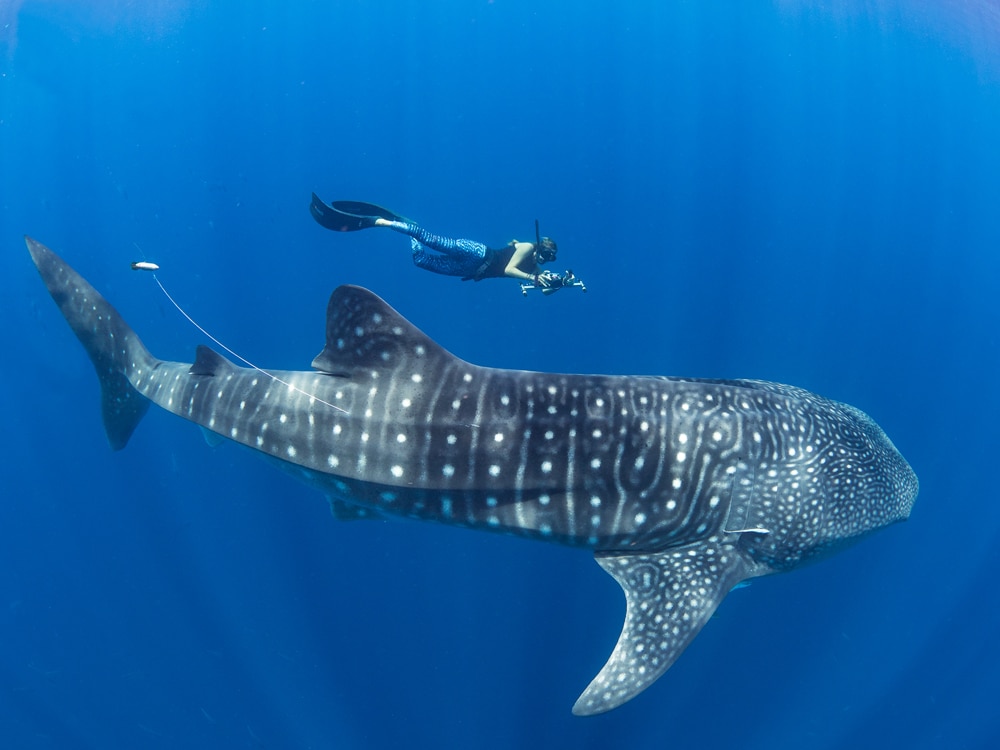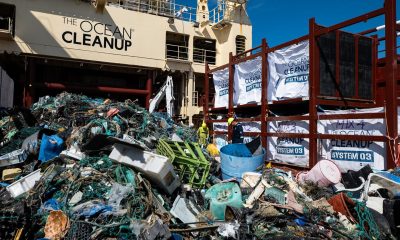News
Madagascar emerges as hotspot for endangered whale sharks

A new study published in the journal Endangered Species Research has revealed that juvenile whale sharks swim to Madagascar, a newly-identified hotspot for these huge fish, to feed. Eighty-five individual sharks were identified in a single season using photographs of their distinctive spot patterns. An isolated ‘island continent’, famed for animals and plants that exist nowhere else in the world, Madagascar’s nutrient-rich waters are also home to an incredible array of marine life attracting increasing numbers of tourists.
Whale sharks are primarily seen around the small island of Nosy Be, in northwest Madagascar. This area is a globally important hotspot for large marine species, including manta rays, sea turtles, humpback whales and even rare Omura’s whales. The study is part of the Madagascar Whale Shark Project, a collaboration initiated in 2016 by researchers from the Marine Megafauna Foundation, Florida International University, and Mada Megafauna.
Lead author and project leader Stella Diamant said: “We’ve found that whale sharks regularly visit Nosy Be between September and December. That has led to a growing ecotourism industry, as people travel to see and swim with these gigantic, harmless sharks. We’re still learning about their population structure and movement patterns, but it’s clear the area is an important hotspot for the species.”
Whale sharks are the largest fish in the world, growing up to 20 meters long. However, all of the sharks seen in Madagascar have been juveniles of less than nine meters.
“We identified 85 individual whale sharks over our first season in 2016. Some of the sharks were present across several months. They spend a lot of time in the area and seem to come here to feed,” Diamant said.
The marine biologists uploaded photographs of the sharks’ unique spot patterns to Wildbook for Whale Sharks (a global database of sightings) and compared them with data collected from known feeding areas in the Indian Ocean, including Djibouti, the Maldives, Mozambique, Seychelles and Tanzania, but found no overlap.
“Whale sharks are a globally endangered species due to overfishing, accidental catches and boat strikes. Major declines in sightings have been seen in Mozambique, where we’ve documented a 79% decline in sightings since 2005, and the Seychelles. I was hoping that some of those sharks might have shifted over to Madagascar”, said co-author Dr Simon Pierce, co-founder and principal scientist at the Marine Megafauna Foundation.
“Unfortunately, that doesn’t seem to be the case. It’s great news for Madagascar though. These sharks can be a major asset for the country. There’s already a good marine ecotourism industry developing”, he added.
As part of this study, the team attached eight satellite tags to immature whale sharks to track their movements in near real-time. They found that the sharks spent most of their time in shallow waters between 27.5-30°C around the tagging area in Nosy Be.
Half of the tagged sharks also visited a second hotspot near Pointe d’Analalava, 180 km south of Nosy Be. Five of the sharks swam over to Mayotte and the Comoros islands, and two swam right down to the southern end of Madagascar. One of those sharks then swam back to Nosy Be, a total track of 4,275 km. The sharks are slow-swimmers, travelling an average 21 km per day. Three sharks were resighted in the Nosy Be area the following season after having lost their tags.
“It was exciting to see that there is a second hotspot for the sharks in the area. We will be exploring the area later this year. Madagascar clearly provides an important seasonal habitat for these young whale sharks, so we need to ensure they are effectively protected in the country”, concluded Diamant.
Madagascar is a known location for shark fishing and finning. Whale sharks are currently afforded no formal protection except in two Marine Protected Areas located to the southwest and northeast of Nosy Be.
“Over the last decade, shark populations have declined dramatically in Madagascar due to overfishing. However, the most significant threat to this species is the incidental catch in coastal gillnets and industrial purse seiners operating offshore”, said Dr Jeremy J Kiszka, a marine biologist at Florida International University and co-scientific lead of the Madagascar Whale Shark Project.
Whale sharks are listed as ‘endangered’ on the IUCN Red List of Threatened Species since 2016 and received an Appendix I listing the UN Convention on Migratory Species in 2017. As a signatory to the Convention, Madagascar is obligated to protect the sharks and their migratory habitat in national waters.
The study was supported by Les Baleines Rand’eau, Aqua-Firma, PADI Foundation, IDEA WILD, Waterlust, the Shark Foundation, and two private trusts.
Stella Diamant, Christoph A Rohner, Jeremy J Kiszka, et al. ‘Movements and habitat use of satellite-tagged whale sharks off western Madagascar’ was published on 17 May 2018 and is available here.
For more information about Marine Megafauna Foundation please visit:
Website: www.marinemegafauna.org
Facebook: www.facebook.com/MarineMegafauna
Images by www.simonjpierce.com
Blogs
EXCLUSIVE: Jeff Goodman interviews Mark Spiers, CEO of New Scuba Diving Training Agency NovoScuba

In a video recorded exclusively for Scubaverse.com, Jeff Goodman interviews Mark Spiers, CEO of new scuba diving training agency NovoScuba.
Find out more about NovoScuba at www.novoscuba.com.
News
Charting New Waters; NovoScuba Goes Global with the Launch of their Revolutionary Dive Training Agency!
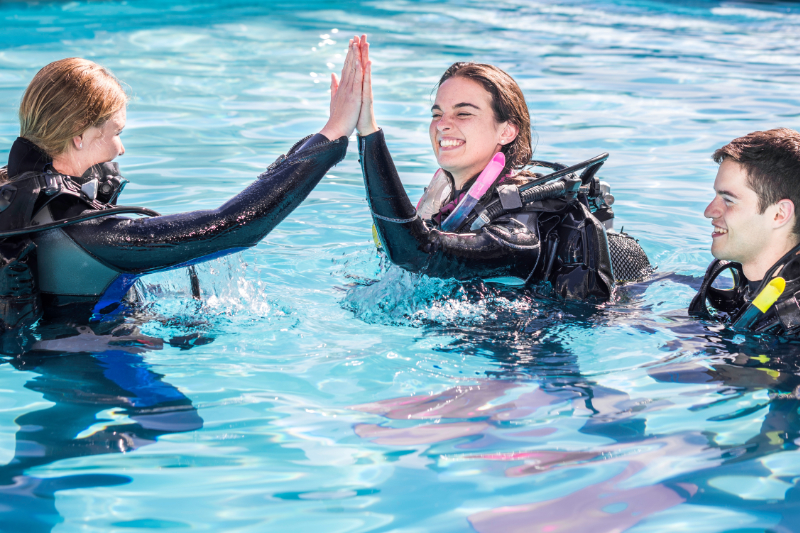
Discover a New Era of Dive Education: NovoScuba Brings Innovation to the Surface! Fully ISO Certified and Equipped with Cutting-Edge Technology.
 With a combined experience spanning over a century in the diving industry, a team of accomplished dive store owners, managers, and professionals unveils NovoScuba, a ground-breaking dive training agency poised to redefine the benchmarks of underwater education. Launching in May 2024, NovoScuba promises a revolutionary approach to dive training. Their vision is to make diving accessible to everyone, share success within the dive community and emphasise positive interactions with the planet.
With a combined experience spanning over a century in the diving industry, a team of accomplished dive store owners, managers, and professionals unveils NovoScuba, a ground-breaking dive training agency poised to redefine the benchmarks of underwater education. Launching in May 2024, NovoScuba promises a revolutionary approach to dive training. Their vision is to make diving accessible to everyone, share success within the dive community and emphasise positive interactions with the planet.
NovoScuba’s global debut marks a significant milestone in the dive industry. Driven by a vision to challenge convention and harness the power of technology, NovoScuba aims to revolutionise the dive training landscape through its innovative business model, which is digitally native, making it the most technologically advanced dive training agency to date.
“We recognised the need for change in the dive training industry and saw an opportunity to leverage technology, and redefine existing business models to create something truly innovative,” said Mark Spiers, CEO of NovoScuba.
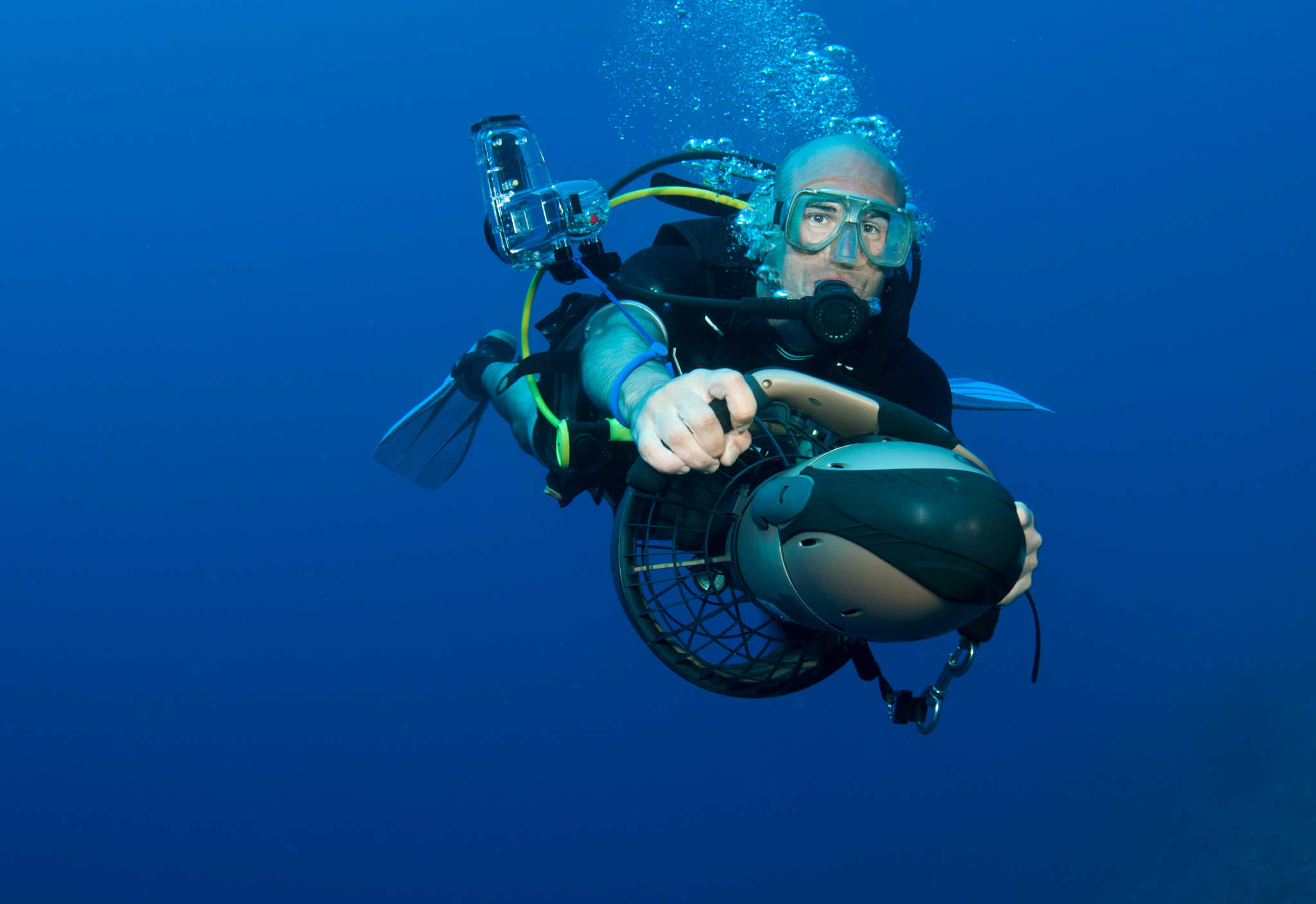
NovoScuba’s platform offers state of the art training programmes ranging from introductory up to professional diving, including various specialties. All programmes meet international standards and ISO certifications are in place. This commitment to shared success, accessibility and positive results for the planet, all at a cost effective and affordable level, is what will make NovoScuba stand out.
“Our deep understanding of traditional pain points for the industry, combined with our digitally native approach positions NovoScuba as a game-changer in dive education. Offering unparalleled initiatives such as student subscription, open access to all course materials, pay as you certify, no stock required, monthly membership payments, payment in local currencies, one-click certifications, and membership freezing, NovoScuba is set to redefine the industry. Available in 13 languages, at launch, the NovoScuba courses are written for the modern divers, with a focus on up-to-date content, interactive learning, and an engaging platform,” Mark Spiers concluded.
NovoScuba is challenging a change in the industry, redefining established traditional systems, and ushering in a new standard of excellence, support, and partnership. Their collaborations with dive stores, pros and underwater enthusiasts won’t demand exclusivity, prioritising earned loyalty, and an understanding that their Member’s success is key to their own.
NovoScuba
Diving Redefined.
-

 News3 months ago
News3 months agoCapturing Critters in Lembeh Underwater Photography Workshop 2024: Event Roundup
-

 Marine Life & Conservation Blogs3 months ago
Marine Life & Conservation Blogs3 months agoCreature Feature: Swell Sharks
-

 Blogs2 months ago
Blogs2 months agoMurex Resorts: Passport to Paradise!
-

 Blogs2 months ago
Blogs2 months agoDiver Discovering Whale Skeletons Beneath Ice Judged World’s Best Underwater Photograph
-

 Gear Reviews3 weeks ago
Gear Reviews3 weeks agoGEAR REVIEW – Revolutionising Diving Comfort: The Sharkskin T2 Chillproof Suit
-

 Gear Reviews3 months ago
Gear Reviews3 months agoGear Review: Oceanic+ Dive Housing for iPhone
-

 Marine Life & Conservation2 months ago
Marine Life & Conservation2 months agoSave the Manatee Club launches brand new webcams at Silver Springs State Park, Florida
-

 News2 months ago
News2 months agoPADI Teams Up with Wellness Brand Neuro to Drive Ocean Change and Create a Blue State of Mind


